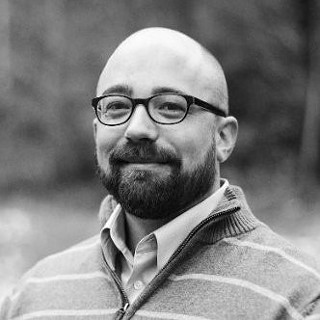Book Review
[
{
"name": "Broadstreet - Instory",
"insertPoint": "5",
"component": "25846487",
"requiredCountToDisplay": "5"
},{
"name": "Broadstreet - Instory",
"insertPoint": "10",
"component": "25846487",
"requiredCountToDisplay": "10"
},{
"name": "Broadstreet - Instory",
"insertPoint": "15",
"component": "25846487",
"requiredCountToDisplay": "15"
},{
"name": "Broadstreet - Instory",
"insertPoint": "20",
"component": "25846487",
"requiredCountToDisplay": "20"
}
]
by Jacob Fries
People often ask Noam Chomsky, one of the world's foremost intellectuals, why he continues to live in the United States. Why doesn't he just move to a place where his ideas have a larger audience? Chomsky's response is quick and firm. "This is the best country in the world," he recently told an interviewer.
So it is with an undying love of America - and an eye for hypocrisy - that Chomsky dismantles U.S. foreign policy in his latest book, Hegemony or Survival: America's Quest for Global Domination. In a heavily footnoted critique, Chomsky argues two central points: that America's aggressive foreign policy dates back 50 years, and that the Bush administration's "resort to force" is bringing the world to the brink of catastrophe.
Exhibit A in Chomsky's case is the Bush administration's "National Security Strategy," which declares in unambiguous terms that the U.S. should use military might, or the threat of it, to impose its will on the world. International law and treaties must be dismissed. "We will not hesitate to act alone, if necessary, to exercise our right of self-defense by acting pre-emptively," the document states.
As a linguist, Chomsky devotes much of his 237-page book to highlighting how facts are manipulated through language. The word "terrorism," for example, is applied only to the actions of others, but never to those of U.S. officials. At worst, the most that American officials will admit to are inadvertent errors or oversight. Also, in a skillful turn of phrase, "pre-emptive" war becomes "preventive" action.
Through this system of propaganda, Chomsky believes that history can be whitewashed, the record altered, people's memories realigned. In other words, friends can become foes, or vice versa, but the official stance appears consistent. Recent events seem to confirm this theory.
In covering Saddam Hussein's capture this week, many TV news networks aired profiles of the deposed tyrant, detailing his rise to power, his brutal reign and his ousting at the hands of the U.S. military. Most of the reports, if not all of them, failed to mention the fact that before 1990, the U.S. had supported Hussein with huge loans, military intelligence, cluster bombs and precursors to chemical and biological weapons. In effect, Chomsky argues, America's link to the evildoer is simply redacted.
At the center of the book is the conclusion that "History is crafted by the powerful." In the end, Chomsky doesn't try to rewrite the past so much as reveal how history is constructed and then reconstructed according to the desires of those at the controls.
Publication date: 12/18/03
People often ask Noam Chomsky, one of the world's foremost intellectuals, why he continues to live in the United States. Why doesn't he just move to a place where his ideas have a larger audience? Chomsky's response is quick and firm. "This is the best country in the world," he recently told an interviewer.
So it is with an undying love of America - and an eye for hypocrisy - that Chomsky dismantles U.S. foreign policy in his latest book, Hegemony or Survival: America's Quest for Global Domination. In a heavily footnoted critique, Chomsky argues two central points: that America's aggressive foreign policy dates back 50 years, and that the Bush administration's "resort to force" is bringing the world to the brink of catastrophe.
Exhibit A in Chomsky's case is the Bush administration's "National Security Strategy," which declares in unambiguous terms that the U.S. should use military might, or the threat of it, to impose its will on the world. International law and treaties must be dismissed. "We will not hesitate to act alone, if necessary, to exercise our right of self-defense by acting pre-emptively," the document states.
As a linguist, Chomsky devotes much of his 237-page book to highlighting how facts are manipulated through language. The word "terrorism," for example, is applied only to the actions of others, but never to those of U.S. officials. At worst, the most that American officials will admit to are inadvertent errors or oversight. Also, in a skillful turn of phrase, "pre-emptive" war becomes "preventive" action.
Through this system of propaganda, Chomsky believes that history can be whitewashed, the record altered, people's memories realigned. In other words, friends can become foes, or vice versa, but the official stance appears consistent. Recent events seem to confirm this theory.
In covering Saddam Hussein's capture this week, many TV news networks aired profiles of the deposed tyrant, detailing his rise to power, his brutal reign and his ousting at the hands of the U.S. military. Most of the reports, if not all of them, failed to mention the fact that before 1990, the U.S. had supported Hussein with huge loans, military intelligence, cluster bombs and precursors to chemical and biological weapons. In effect, Chomsky argues, America's link to the evildoer is simply redacted.
At the center of the book is the conclusion that "History is crafted by the powerful." In the end, Chomsky doesn't try to rewrite the past so much as reveal how history is constructed and then reconstructed according to the desires of those at the controls.
Publication date: 12/18/03

















